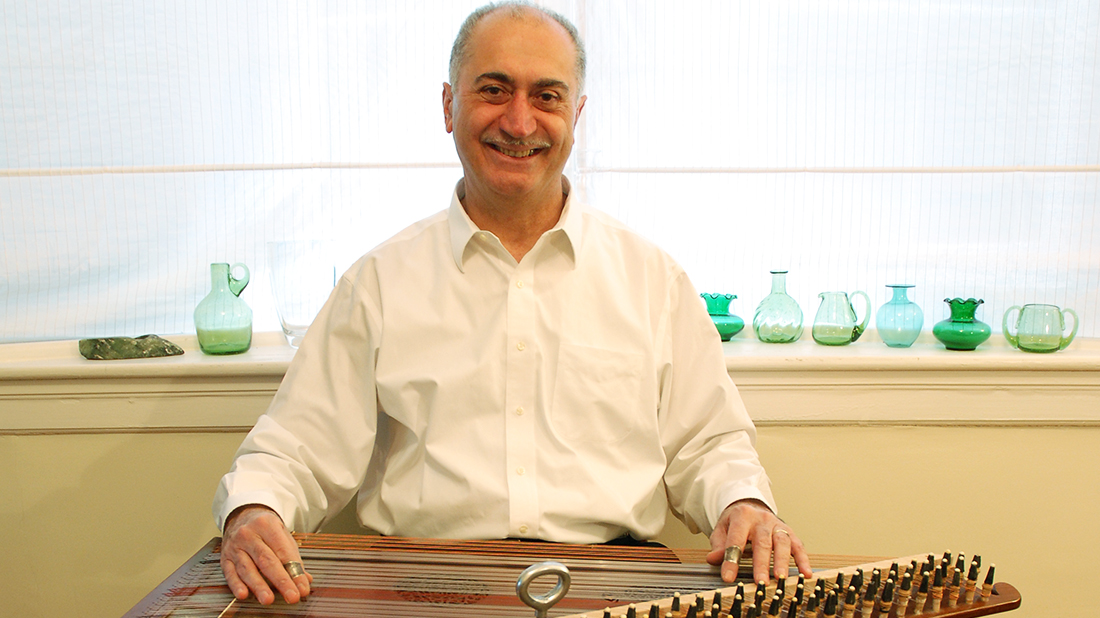Lecture

Ibn al Tahhan’s “A Compendium of a Fatimid Court Musician” with George Sawa
Date:
2018 Jun 14 - 1pm - 2pm
Price: Free with Museum admission
Learn about a one of a kind masterpiece, Ibn al-Tahhan’s “A Compendium of a Fatimid Court Musician,” a dictionary and biography of music and musicians of the Fatimid era.
George Sawa, a historian of medieval Arabic music and a qanun (psaltery) performer, guides us through the rhythms, melodic modes, instruments, music forms, and ornaments of that time. Listen to some of these surviving musical elements as Sawa is joined by Suzanne Meyers Sawa for a demonstration using a qanun and various percussion instruments.
The remarkable Fatimid dynasty built one of the world’s oldest universities, compiled one of its greatest libraries and fostered a flowering of the arts and sciences. At its height in the 10th and 11th centuries, the Fatimids established one of the greatest civilizations in the world, influencing knowledge and culture throughout the Mediterranean, Europe and the Near East. Sadly, no Fatimid melodies have survived, but we are fortunate that the work of Ibn al-Tahhan has.
Bios:
George Sawa was born in Alexandria, Egypt. He has more than 50 years of experience in Arabic music performance, history, and theory, and has performed and lectured extensively worldwide. He studied piano with Mme Irene Drakides, herself a student of the famed educator Alfred Cortot. He also studied qanun, theory, and voice at the Higher Institute of Arabic Music. After immigrating to Canada, he studied ethnomusicology at the University of Toronto, and obtained his doctorate in historical Arabic musicology. He has taught graduate and undergraduate courses on medieval, modern, and religious music of the Middle East and is the author of several books and more than 50 articles on Arab music. A frequent guest lecturer around the world, Sawa, in 2005, received the prestigious Lifetime Achievement Award from the Egyptian Ministry of Culture for his research in Arabic music history. He has taught hundreds of belly dancers and has been the musical director for several productions, winning a JUNO award in World Music in 2009. Currently, Sawa is working on a book of annotated translations from al-Isfahani’s Book of Songs to be published by Brill in 2018.
Suzanne Meyers Sawa was born in Cleveland, Ohio. She holds a degree in piano performance from Wittenberg University in Ohio, and Masters degrees in both musicology and library science from the University of Toronto. Meyers Sawa has studied classical Arabic at the University of Toronto, and Arabic percussion in Egypt. A member of the Traditional Arabic Music Ensemble since the early 1980s, Meyers Sawa has also performed in productions of R. Murray Schafer’s The Litany of RA. She has also presented numerous papers on Arabic music at international conferences, and has published works on female Arabic musicians in the early Islamic period for both The Garland Encyclopedia of World Music and The Encyclopedia of Islam (third edition). She is currently working on a book of annotated translations from medieval Arabic sources of stories about women musicians.
